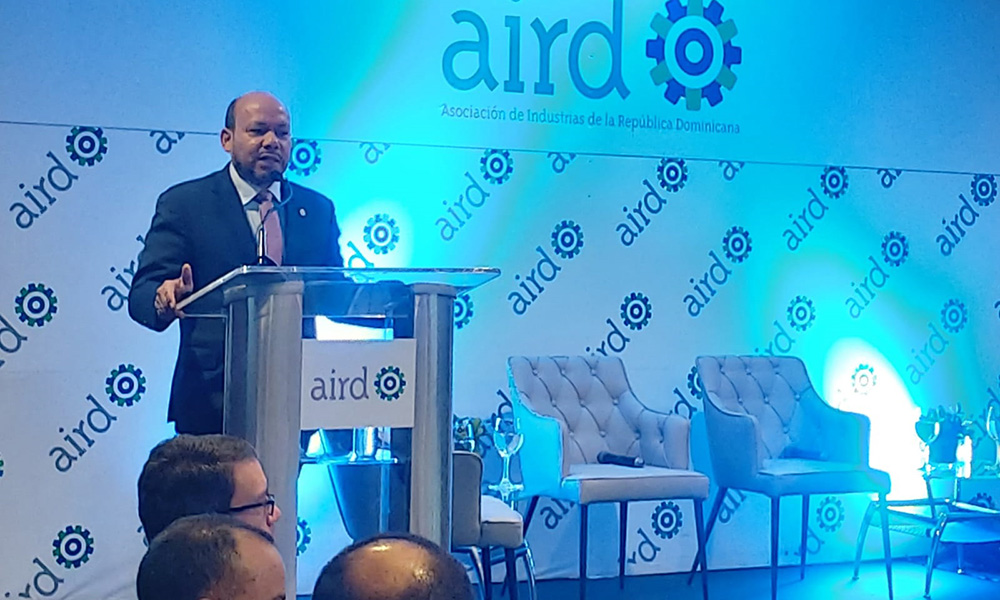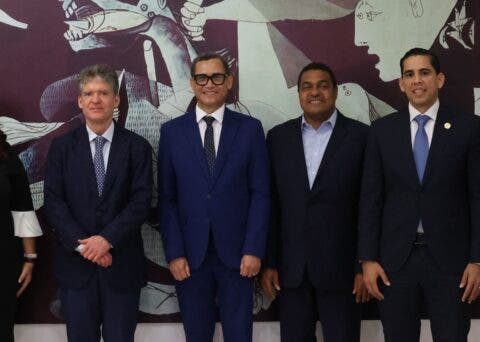If the General Directorate of Internal Taxes (DGII), the business sector and those who know the law in the Dominican Republic are clear about anything, it is that the 1992 Tax Code was left far behind in time and requires modernization.
Yesterday, the Thematic Breakfast entitled “Towards the modernization of the Tax Code” was about this, organized by Internal Taxes and the Association of Industries of the Dominican Republic (AIRD). It was an activity in which the director of the collection body, Luis Valdez, made it clear that he is not proposing to modify the law to create taxes, but to modernize procedures.
And that of modernizing procedures is due to the fact that when the Code was born -in 1992- there were no technological advances, like those of today, which allow, for example, that 95% of the declarations of the companies are made through the DGII page (of the Virtual Office).
“Then we have to adapt the law to these times. That is what the modification to Title I of the Tax Code is about, and trying to bring some facilities to taxpayers, such as lowering the issue of arrears,” Valdez specified to the journalists who addressed him after the formal activity concluded, carried out in the Business Tower, in the capital.
From his point of view, the current Title I of the Tax Code of the Dominican Republic dates from 1992 and the legal progress and experiences acquired since then make it necessary to implement a new Title I so that, within the framework of respect for constitutional norms and the simplification of procedures, the rights and guarantees of taxpayers are raised, while achieving an efficient and agile regulatory systematization, which allows obtaining in a timely manner, and in the most efficient way possible, the collections resulting from the obligations taxes mandated by law.
One of the important advances contained in the project is the one that seeks to benefit taxpayers, with the reduction of arrears, from its new conception, to 3% per month or for a fraction of the month, with a limit of up to 100%. of the tax.
Additionally, the catalog of taxpayer rights is introduced, the OFV mailbox is established as a means of receiving requests and not only as a means of notifying acts, and the obligation of the administration to publish technical queries is established.
The project recognizes the need for a search warrant to control closed places or personal dwellings, establishes the obligation to pay compensatory interest to the taxpayer due to the delay of the Tax Administration in the reimbursement procedure, and creates the figure of the electronic auction in the execution of the tax debt.
It seeks to allow compensation with taxes, advances and penalties, regardless of their nature, and an automatic compensation method is established.
“As we can see, what we are proposing is a transformation in favor of taxpayers; That is why we value in its fair dimension the welcome and support that we have received from all the business associations of the country, especially from the Industry Association of the Dominican Republic, who not only with their observations, but also with discussion spaces such as the one that we have today convenes within the framework of this important event, they help us in strengthening the project and the full understanding of its members”, said Luis Valdez.
He assured that he has the firm decision to maintain a Close and Transparent Tax administration towards all taxpayers.
The preparation of the Draft Law of Title I of the Tax Code, in addition to the review of an expert multidisciplinary commission and the integration of all the bodies of the Tax Administration, the Ministry of Finance, the Legal Consultancy of the Executive Power, had the review of important international organizations such as the Inter-American Center of Tax Administrations, the Inter-American Development Bank and the International Monetary Fund (IMF). The director of the DGII, as well as Celso Juan Marranzini, president of the AIRD, and Yorlin Vásquez, deputy legal director of the DGII, spoke on the subject.
“Between one thing and the other sixty years have passed”
Title I of the Tax Code to which reference is made, and on which the modernization is sought, deals with substantive norms, procedures and sanctions and is not a tax or economic title, but a didactic one. Yorlin Vásquez said that the preliminary bill presents a series of novelties.
The director of Internal Taxes recalled that after a long history of 30 years, the old Law 5911-62 was replaced by Law 11-92 or Tax Code of the Dominican Republic, in 1992.
Since then, 30 more years have passed and that Tax Code is still in force without major modifications, except for some aspects, which have always been to try to raise the level of fiscal pressure, but never seeking to benefit taxpayers.
“Much less seeking to guarantee the simplification of tax procedures, which as I have said on other occasions, that one of the most difficult systems to meet our obligations with the treasury is that of the Dominican Republic,” he said.

















